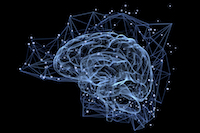Tracking Students’ Mental Engagement Using EEG Signals during an Interaction with a Virtual Learning Environment
 Monitoring students’ level of engagement during learning activities is an important challenge in the development of tutoring interventions. In this paper, we explore the feasibility of using electroencephalographic signals (EEG) as a tool to monitor the mental engagement index of novice medicine students during a reasoning process. More precisely, the objectives were first, to track students’ mental engagement evolution in order to investigate whether there were particular sections within the learning environment that aroused the highest engagement level among the students, and, if so, did these sections have an impact on learners’ performance. Experimental analyses showed the same trends in the different resolution phases as well as across the different regions of the environments. However, we noticed a higher engagement index during the treatment identification phase since it aroused more mental effort. Moreover statistically significant effects were found between mental engagement and students’ performance.
Monitoring students’ level of engagement during learning activities is an important challenge in the development of tutoring interventions. In this paper, we explore the feasibility of using electroencephalographic signals (EEG) as a tool to monitor the mental engagement index of novice medicine students during a reasoning process. More precisely, the objectives were first, to track students’ mental engagement evolution in order to investigate whether there were particular sections within the learning environment that aroused the highest engagement level among the students, and, if so, did these sections have an impact on learners’ performance. Experimental analyses showed the same trends in the different resolution phases as well as across the different regions of the environments. However, we noticed a higher engagement index during the treatment identification phase since it aroused more mental effort. Moreover statistically significant effects were found between mental engagement and students’ performance.







